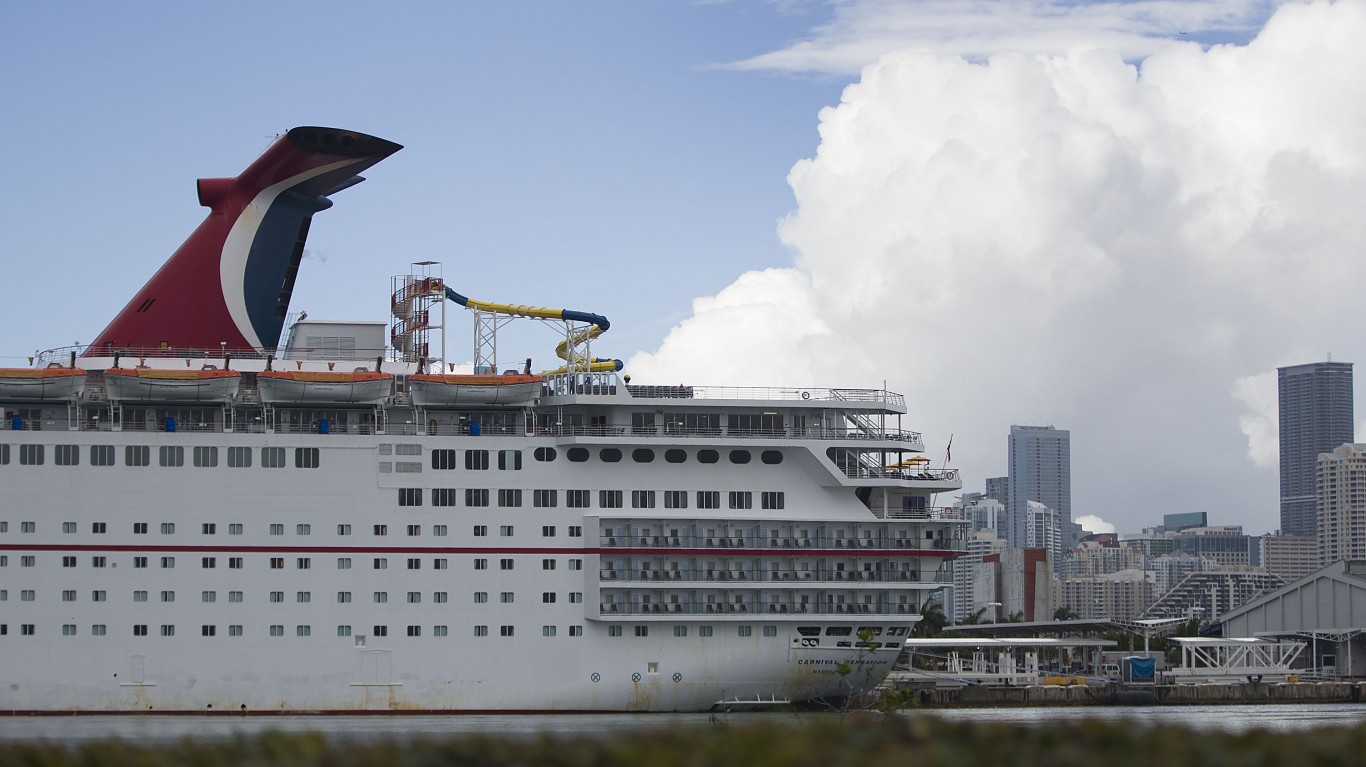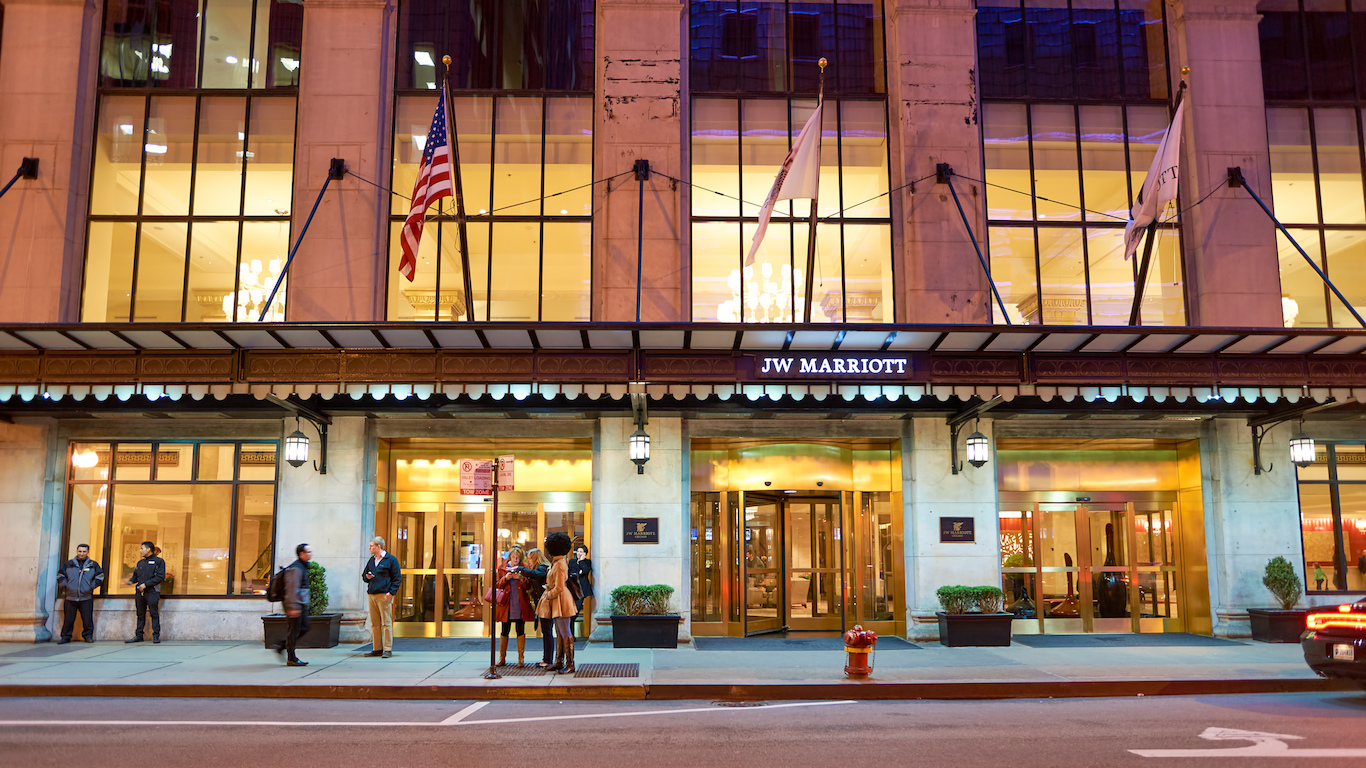
No industry has been hit harder by the COVID-19 pandemic than the leisure and hospitality sector. Job losses in the industry total more than 670,000, including nearly 93,000 jobs lost in June.
The pandemic is also speeding up the retirement of ships and slowing down the addition replacements. Carnival Corporation & PLC (NYSE: CCL) on Friday announced that it will reduce its fleet of 105 ships sailing under nine brands by about 12.4% over the next 90 days.
Carnival reported that it sold one ship in June and has reached agreements to sell five more, with negotiations continuing on three additional ships. Those nine (representing about 8.7% of the fleet) will join four others that were sold prior to the beginning of the company’s 2020 fiscal year, which began in December.
While Carnival has not disclosed the purchasers of its ships, it’s a good bet that no cruise line, no matter how small, is laying out cash now to acquire new ships. The next best solution (perhaps the only other solution) is to sell the ships for scrap.
Major cruise lines often sell older ships to smaller lines when the ships are 20 to 25 years old. While the ships may serve at least that long again with the smaller lines, many vessels are scrapped after 40 or 50 years of service, according to The Points Guy.
In addition to removing ships from its fleet, Carnival expects delivery of just five new ships out of nine originally scheduled for delivery by the end of fiscal 2021. Ships due in 2022 and 2023 are also expected to see delayed deliveries.
Noting that the company has “aggressively shed assets while actively deferring new ship deliveries,” Carnival CEO Arnold Donald also said the company has reduced operating costs by about $7 billion annualize and will cut capital spending by $5 billion over the next 18 months.
Carnival’s monthly average cash burn rate for the second half of this year is expected to be approximately $650 million. The company said it continues to seek opportunities to reduce the cash burn further.
As of the end of June, bookings for 2021 available capacity “remain with historical ranges at prices that are down” by low- to mid-single digits.
Investors appear to believe that Carnival will recover quickly too. The consensus estimate for the current year calls for a loss of $6.31 a share. The estimated loss in 2021 is currently estimated at $1.47 and the company is expected to post a profit of $1.84 per share in 2022.
Analysts were not slow to cut their estimates on the company. It’s not hard to see why. Carnival posted earnings per share of $2.63 in the August quarter last year, while the estimate for the current quarter calls for a loss of $1.41 per share. Quarterly revenue is expected to plummet 88%, from $6.53 billion last year to just $781.7 million.
The consensus 12-month price target of $16.86 is just 4.33% higher than Friday’s closing price, and the 52-week high is a whopping 220% higher than the Friday price. That very low price, combined with a two- or three- or more-year investment horizon, could mean that the stock may be a reasonable long-term play for a patient investor. Note “may be.”
Carnival shares traded down about 2.6% Monday morning, at $15.74 in a 52-week range of $7.80 to $51.94.
In 20 Years, I Haven’t Seen A Cash Back Card This Good
After two decades of reviewing financial products I haven’t seen anything like this. Credit card companies are at war, handing out free rewards and benefits to win the best customers.
A good cash back card can be worth thousands of dollars a year in free money, not to mention other perks like travel, insurance, and access to fancy lounges.
Our top pick today pays up to 5% cash back, a $200 bonus on top, and $0 annual fee. Click here to apply before they stop offering rewards this generous.
Flywheel Publishing has partnered with CardRatings for our coverage of credit card products. Flywheel Publishing and CardRatings may receive a commission from card issuers.
Thank you for reading! Have some feedback for us?
Contact the 24/7 Wall St. editorial team.



